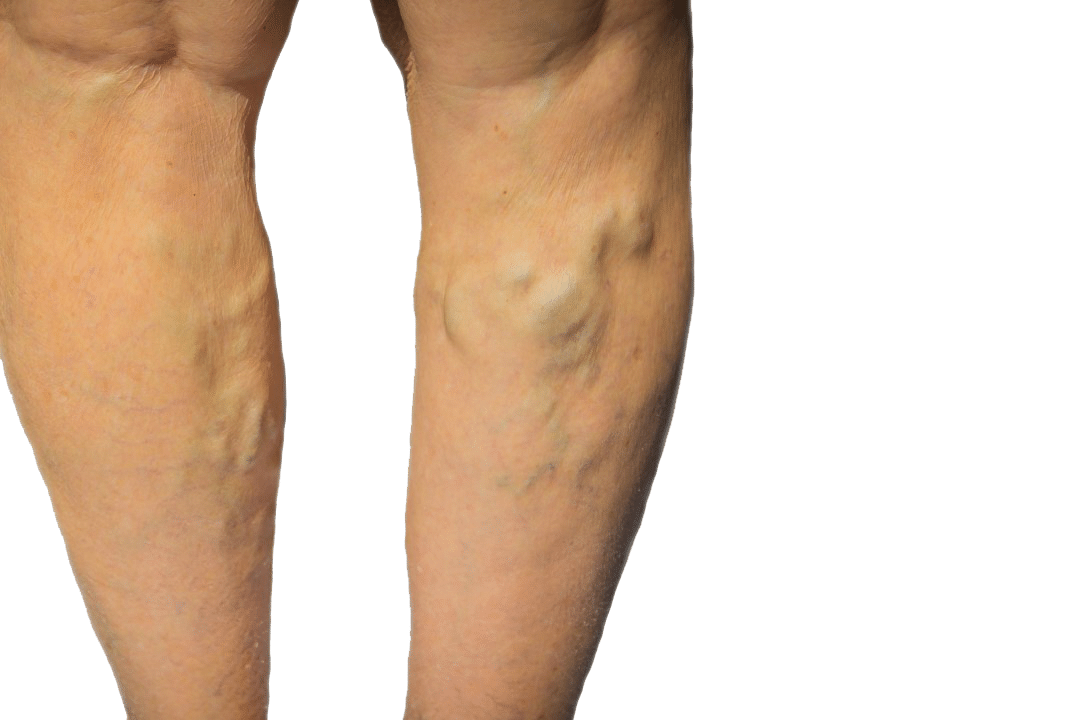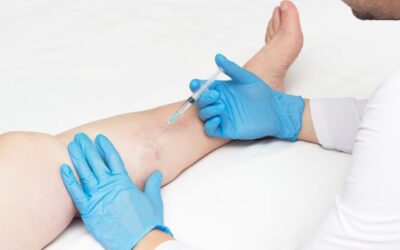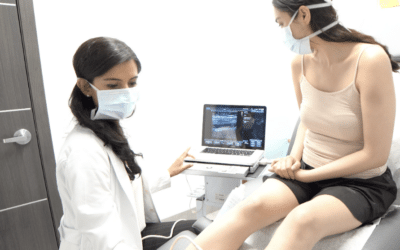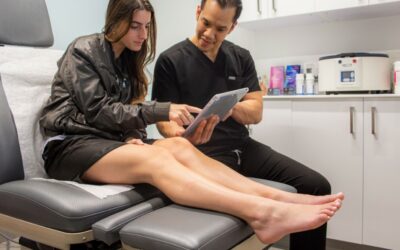Top Long Island Vein Doctors
Varicose Vein Center in Suffolk County: What to Expect from Varicose Vein Treatments?
Our varicose vein center in Suffolk County describes minimally invasive varicose vein treatments, including endovenous laser ablation.
Vein Treatment Clinic is a highly-reputable varicose vein center in Suffolk County, with 5-star ratings and reviews from patients. Dr. Caroline Novak, our board-certified vein doctor, is one of the most popular and reputable vein specialists in the United States. She specializes in the latest minimally invasive varicose vein treatments, having performed hundreds of vein treatment procedures throughout her career.
During your initial consultation, our board-certified vein specialists examine your enlarged veins and other vein problems to identify venous insufficiency. Our state-of-the-art vein clinic takes a personalized approach to vein treatments, identifying the root cause of enlarged veins before curating a treatment plan. After examining your enlarged veins and visually looking for signs of vein disease, our vein doctor administers Duplex Ultrasound, a vascular imaging test used to visualize the blood flow in your leg veins.
Duplex Ultrasound allows our vein specialists to determine, with certainty, if you have underlying venous insufficiency. If you have vein disease, our vein specialists recommend minimally invasive varicose vein treatments, such as radiofrequency ablation, endovenous laser ablation, and VenaSeal. If you don’t have underlying vein disease, our vein specialist may treat your enlarged veins with ambulatory phlebectomy and sclerotherapy.
If you have enlarged veins, spider veins, varicose veins, restless legs syndrome, or other symptoms of vein disease, please contact our state-of-the-art vein clinic immediately. Our vein treatment center is located in Lindenhurst, right on the border of Suffolk County and Nassau County, besides the Southward Ho Country Club. In this article, we provide a detailed overview of all the latest minimally invasive varicose vein treatments, so you know what to expect.
Radiofrequency Ablation
During the radiofrequency ablation procedure, the vein doctor applies local anesthesia on your skin to create an incision. The incision is used as an entry point for the catheter, which is driven through the incision and into the diseased saphenous vein under ultrasound guidance. Once the catheter is lodged in place, the vein expert injects anesthesia to the saphenous vein’s walls, protecting the surrounding tissues. Finally, the vein specialist engages the catheter to deliver thermal energy into the vein’s walls. The diseased vein collapses, and the accumulated blood reroutes to healthier veins, restoring effective blood circulation and treating vein disease.
Radiofrequency ablation is incredibly effective, with a nearly perfect success rate. It doesn’t cause any pain or discomfort during or after the procedure. Radiofrequency ablation is also covered by most insurance plans because it’s medically necessary.
Endovenous Laser Ablation
During the endovenous laser ablation procedure, the vein specialist applies local anesthesia on your skin to create an incision. The vein doctor drives a laser fiber connected to a catheter through the incision, using vascular imaging to guide it into the diseased saphenous vein. The vein doctor applies tumescent anesthesia, i.e., anesthesia is delivered to the vein’s walls. Finally, the vein expert delivers laser energy, collapsing the problematic saphenous vein. The accumulated blood automatically flows into healthier veins, restoring smooth blood circulation to the heart, treating venous insufficiency.
Endovenous laser ablation has a nearly perfect (97%) success rate, and it has a negligible risk of side effects or complications. However, endovenous laser ablation causes more post-procedural discomfort than radiofrequency ablation because laser energy is hotter than thermal energy. Endovenous laser ablation is covered by most insurance plans.

We know health insurance is confusing so we will help you check if you’re covered:
FREE Coverage Checker:
VenaSeal
VenaSeal is the name of a medical-grade vein glue used to treat vein disease. During the VenaSeal procedure, our vein specialists inject the medical adhesive into the diseased saphenous vein, using vascular imaging for guidance. The vein glue seals the saphenous vein’s walls, shutting it down. The accumulated blood flows to healthier veins, restoring smooth blood circulation to the heart. Meanwhile, the diseased vein hardens and gets absorbed by the body, treating vein disease.
VenaSeal has a perfect success rate, and it causes minimal pain or discomfort. However, VenaSeal has only recently received FDA approval, so it’s not yet covered by insurance plans, making it a costly procedure.
Ambulatory Phlebectomy
Ambulatory phlebectomy is a cosmetic treatment used to remove enlarged veins or varicose veins from the skin’s surface after the primary varicose vein treatment. During the varicose vein treatment, our vein doctor applies local anesthesia to your skin and creates incisions to physically extract and remove enlarged veins.
Ambulatory phlebectomy is completely safe. The incisions will initially leave a scar, but they’ll eventually fade away, restoring your leg’s beauty. Ambulatory phlebectomy isn’t covered by insurance plans because it’s a cosmetic procedure.
Sclerotherapy
During the sclerotherapy procedure, the vein doctors inject a sclerosant solution into the spider veins, fusing their vein walls and turning them into hardened scar tissues that eventually get absorbed and fade away from the skin’s surface. A single sclerotherapy session can remove most of the visible spider veins within three weeks.
Sclerotherapy isn’t covered by insurance plans because it’s a cosmetic procedure. Sclerotherapy is only used to remove spider veins without addressing the underlying vein disease. As such, our vein doctors will only provide sclerotherapy if you don’t have vein disease, as determined by vascular imaging, or after the primary vein treatment.

Visit Our Long Island Vein Treatment Center
Schedule an appointment with our state-of-the-art varicose vein treatment center today.
Vein Treatment Clinic is the best state-of-the-art vein treatment center in Suffolk County, located on the Montauk Highway bordering Suffolk County and Nassau County. For more information, please schedule an appointment with our state-of-the-art vein clinics today.
Long Island
Vein Specialists
Meet your Long Island NY Vein Doctor
With Harvard Trained Medical Directors, our vein clinic Long Island sources only the top spider and varicose vein experts in the country.


Change your life
Join thousands of happy patients just like you
Vein treatments are often covered by major medical insurances, including Medicare. How do you know if your insurance will cover your vein treatment?
Contact us
CALL US
Speak with one of our team members to ask any questions you may have, verify your insurance and book an appointment at your earliest convenience. (631) 629-1109
BOOK APPOINTMENT
You can give us a call at (631) 629-1109 or fill out one of our forms here to request a call back; one of our team members will call you and help you verify your insurance coverage before booking your appointment.
Get directions
Visit us at our Long Island Vein Treatment Center located at 481 West Montauk Highway.


